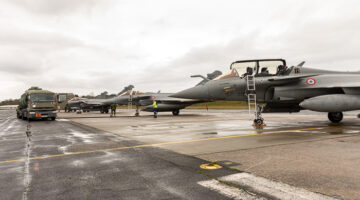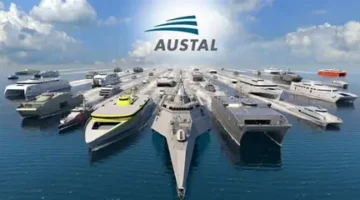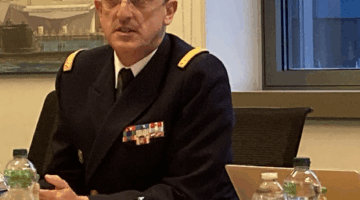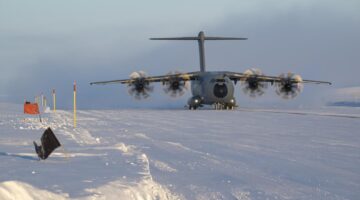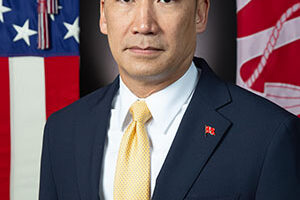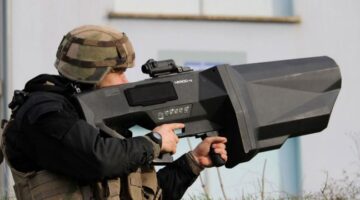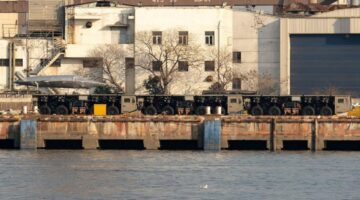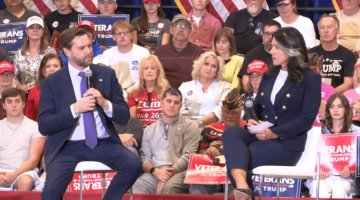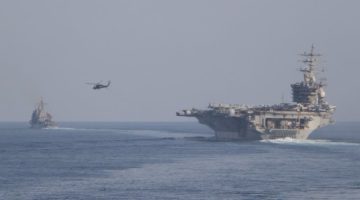Crédits photos © D.R.
President Obama has laid down another “red line,” this one against Isis. And in this effort he seeking to forge a coalition.
One ally and indeed the most affected one is not rushing to help, certainly not overtly.
Turkey is a hesitant ally, and as such, one wonders about its role more generally in the region.
Turkey Directly Affected
Turkey has announced their non-participation at any military operation.
As the only NATO country directly under the threat of ISIS, and by his geographical position, 750 miles of border with Iraq and Syria, Turkey is the gateway to these states and could have been the outpost of these operations.
Rather than playing a direct role, Turkey will limit its operations at the humanitarian dimension as stated by the Turkish President Recep Tayyip Erdogan:
“Nothing other than humanitarian assistance can be expected from Turkey.”
In practical terms, this stance means the establishment of a buffer zone along its border, although details were not specified.
Furthermore, as an official said, “Incirlik has and continue to be used for humanitarian operations, not for military operations.”
Located fewer than 100 miles from the Syrian border, this air force base could have been used for U.S and allied logistical and reconnaissance missions.
Through recent history, the right to use Turkish territory had been leverage for Ankara. The most recent example was when the Turkish government declined to permit the movement of U.S. troops through its territory during Iraqi Freedom. During Provide Comfort (1991-1996), Incirlik was used by American aircraft but periodically Turkish parliament hinted it would not renew the privilege of overflight.
Even if the Pentagon has announced that “armed and manned” aircraft would be positioned to Erbil, capital of the autonomous Kurdish region, solving thereby partly the concern about Incirlik AFB, Turkey’s decision to stay behind the scenes does not eliminate the problem of determining Turkey’s role.
The Obama administration wants to cut off the oil revenue that has made the ISIS a wealthy terrorist group.
Quoted by the New York Times, James Philips, the senior fellow for Middle Eastern Affairs at the Heritage foundation, explained, “Oil is a huge part of the financing equation.”
But until now, Turkish authorities have been unwilling to cooperate in efforts to target the smuggling networks. They are in fact well rooted, through individuals, families, and organizations, some dating for decades, when Saddam Hussein ruled Iraq.
Allied Concerns
For European countries, the concern is placed on the level of the flow of fighters who transit Turkish territory toward Syria and Iraq.
Using the same path to go back in their country, Turkey becomes a conduit for terrorist attacks.
“The borders were wide open. We used to get in and out of Turkey very easily.
No questions were asked.
Arms shipments were smuggled easily to Syria” told a non-Syrian Islamist fighter.
And the Kurdish authorities who are central to the battle against Isis are concerned as well.
Fuad Hussein, chief of staff to the Kurdistan Region presidency, stated,
Turkey did not meet our expectation…
There are extensive economic, trade and political ties between Turkey and the Kurdistan Region.
If you analyze the extent of our relations with Turkey you would assume that Turkey would be heavily involved in this issue.
Turkey consistently reiterated that if the security of the Kurdistan Region is threatened they would intervene.
Well, our security was under threat, but still we did not receive any support from Turkey…
Every single Kurd is upset with Turkey’s position.
How would President Barzani not be upset about it?
We are pset, because they did not help us when we needed them.
Turkey Remains Behind the Scenes
Turkish’s decision is determined by three reasons.
The first, and most visible, is the Turkish hostages.
“Our hands and arms are tied because of the hostages” recently admitted Ismet Yilmaz, Turkish Ministry of Defense.
Indeed, since the fall of Mosul in June 11, IS detained 49 Turks, captured in the Turkish consulate, including diplomats, especially the consul general, Special Forces’ soldiers and children. Military operation risks to threaten their lives, IS using them as bargaining chip.
But this reason is no longer relevant since the release of the hostages on September 20.
But as Gonul Tol explained in a recent conference at the Wilson Institute and through an article in The New York Times,
The Turkish government thinks the rise of ISIS is the result of Shia government discrimination against the Sunnis in Iraq.
If the United States keeps beefing up the Iraqi army, which is dominated by Shia, the Sunnis could become further marginalized and receptive to ISIS ideology.
Shia support could also strengthen Iran’s hand in Iraq, an outcome Turkey wants to avoid.
In Syria, Turkey has been at the forefront of the anti-Assad coalition.
Ankara turned a blind eye to weapons transfers to groups linked to Al-Qaeda (like Jabhat al-Nusra group) in hopes of hasten Assad’s fall.
Islamists are until now the most capable force against the ruler of Damascus, an effective strike on them indirectly serving Bashar al-Assad.
Even if Turkish intelligence services have been forced more recently to recognize the growing threat that these groups posed, it didn’t lead to an active implication.
As Sinan Ulgen, a former Turkish diplomat, recently stated, “The fundamental reason the behavior changed, is the fact that Ankara realizes much more clearly that (the Islamic State group) is a security threat to Turkey.”
Indeed, as one Islamic State fighter told to Reuters, “The Islamic State is here to establish the law of God … Turkey is not being ruled based on God’s law but as a secular state. Right now the priority is Lebanon, Syria, Iraq, Palestine and Saudi Arabia, then Turkey.”
Such kind of menaces, beyond the security concerns, could undermine the image of Turkey for international tourism, experiencing a crisis like in Tunisia and Egypt.
Finally, ISIS also controls the area around the tomb of Suleyman Shah, grandfather of the founder of the Ottoman Empire, in northern Syria.
The group has destroyed several tombs sacred to Shi’ites, stirring fears that their next target might be Suleyman Shah.
A similar wipe attack was recorded after the fall of the holy city of Tombouctou in North-Mali in 2012.
As described by Reuters, “Ankara regards the tomb as sovereign Turkish territory under a treaty signed with France in 1921, when Syria was under French rule, and has said it will defend the mausoleum.”
The “Solution Process” between Turkey and the PKK
But, beyond the reasons stated above, an addition one can explaini the Turkish low profile role when ISIS is becoming a clear threat to stability in the Middle East, and that is the lingering challenge of the Kurdish question.
Born in 1974 as splinter group from the Turkish Revolutionary Younth Party, the Workers Party of Kurdistan (Partiya Karkerên Kurdistan– PKK) formally announced its existence as a separate party in 1978, after it moved its headquarters and base of operations from Ankara into Kurdistan.
Founded as a Marxist-Leninist party, its mainly aim is the freedom of Kurdistan. PKK conducted terrorist attacks against Turkish militaries and installations, and Kurdish citizens thought to have cooperated with the government.
Some 40,000 people have been killed in the conflict since the 1980s Turkish government reacted through a rough repression: martial law in Kurdish regions, military policing and limitations of fundamental rights.
Since his creation, the PKK has always been led by Abdullah Ocalan, affectionately known as “Apo”, PKK party members being best known in Turkey as the “Apocu”, Turkish for “Apo’s folks.”
Even if his capture in 1999 in Kenyan by Turkish services, helped by US and Israeli intelligence, denied him of all practical roles, he continues to be the major figure of the PKK. 1
Since 2012, real progresses have been made through the “Solution process”, leading in March 2013 to a cease-fire including disarmament and withdrawal from Turkish soil.
This landmark is the result of more than 20 years of evolution from both sides towards a compromise.
Turkey authorized in 1991 the use of Kurdish in public, in 1999 the Kurdish teaching, in 2002 the broadcasting in Kurdish and in 2003, parents were allowed to give their children Kurdish names.
For its part, the PKK has moderated theirdemands, mainly through the abandonment of a separate state for an autonomy within Turkey’s borders.
The most recent step forward, in July 10, was the approval by Turkish parliament on a legal framework would assure immunity for state officials who engage in talks with the PKK.
PKK’s Ambiguous Relations with al-Assad’s Regime
But with the major role played by the PKK in the struggle with ISIS, Turkey has expressed concern about arms delivery.
Indeed, numerous states have supplied weapons and ammunition for Peshemergas – U.S. France, Germany, United Kingdom, etc. – in order to rebalance power against an IS equipped with moderns and heavy weapons looted in Iraqi military bases.
And Turkey is afraid that weapons will end up in the hands of the PKK, ally of Peshmergas.
For the Foreign Turkish Minister Melvüt Cavusoglu,
“The weapons sent (to Iraq) should not end up in the hands of terrorist organizations. They should not end up in the hands of the PKK. It may not be possible to control where these weapons will go.”
Other source of concerns for Turkish regime change policy in Syria, is the de facto alliance between Damascus and PKK.
The PKK set up bases in Syria and the Syrian-controlled Bekaa Valley in Lebanon until 1998, and during a long time, it was an open secret that Ocalan was living in Damascus under the quiet protection of President Hafez al-Assad.
And since the Syrian uprising began, reports surfaced that Assad was allowing the PKK, the PYD (the PKK’s Syrian branch), and the YPG (the military arm of PYD)to move its members to Syria from Qandil enclave.
If PKK is not an open ally to al-Assad, he’s not part of the combat against him, in a neutral stance.
Therefore, in the Turkish view, strikes against ISIS and help to PKK in terms of weapons, training, and intelligence, is an indirect help to maintaining Assad regime.
How the War Might Bolster the PKK
Nevertheless, these previous Turkish concerns seem far from being resolved, the Syrian-Iraq wars bolstering the PKK in terms of international, regional and national perspective.
From an international perspective, PKK is gaining strength, both in military capabilities and international legitimacy. Largely dormant since the cease-fire in Marsh 2013, operations against IS activists and in protection of Christians and Yazidi refugees have restored PKK’s image.
With the insistence of US and other Westerns states to limit the role of military units on the ground, PKK became a significant and welcomed ally.
Further military cooperation seems, in that scheme, a valuable option.
Already, the Western media, politicians and public are discussing to de-list PKK from terrorist’s organizational register.
The September 19 ISIS attacks against Kurdish’s positions in north Syria should provide an opportunity for coalition’s first strikes over this state.
From a regional perspective, ISIS, as a common enemy, has gathered the various Kurdish militias in a kind of national alliance. Thereby the PKK has put aside his disagreements with the Kurdistan Democratic Party (KDP).
“In a way, we have to thank the Islamic State.
They’ve united us, reviving the great Kurdish cause. Our struggle is reborn,” explained Seyid Narin, a municipal mayor in Diyarbakir.
From a national perspective, August 10’s Turkey presidential election has seen Selahattin Demirtas, the candidate of the People’s Democracy Party (HDP), an offshoot of the Kurdish movement, scored a major success. With 9.8%, where Kurdish parties have traditionally mustered 5 or 6%, Demirtas has paved the way for the HDP to grow into a nationwide party.
With this result, HDP representatives are raising the possibility of surpassing the 10% needed to obtain parliamentary seats in 2015.
With his focus about rule of law, freedom of expression and for a no-discriminate society, Demirtas has gathered Kurdish and left-leaning Turks (women, young, worker, minority), both excluded from political system.
His entry in Turkish parliament would be a landmark and a challenge for Erdogan in his project to revamp the Turkish Constitution from the parliamentary system into a presidential system.
As Gonul Tul said:
Judging by the results of presidential elections — and the expected challenges ahead for AKP when Erdogan steps down as party leader later this month — it seems unlikely that AKP will substantially increase its votes in 2015.
This makes the Kurds the kingmaker in Erdogan’s drive to introduce an executive presidency. The Kurds must play their hand wisely and capitalize on this window of opportunity by pushing the government to carry out reforms and address Kurdish demands in the run-up to the 2015 general elections.
Uncertain Impact on the “Solution Process”
No PKK declarations or movements indicate a radical change in his positioning toward the peace process.
This kind of stances would provoke an immediate and violent reaction from Turkey, while PKK units are currently completely engaged in Syria and Iraq.
Furthermore, PKK could lose his takeover on the Kurdish cause in Turkey, Ankara would have the room for promote the rising of young leader, born from recent combat.
This choice would isolate PKK from the democratic process in Turkey and his hopeful results during last elections. HDP would be forced to make a choice between the fidelity to the PKK and the resulting illegality in relation to Ankara; or completely turn with PKK and embrace the democratic process.
Finally, the PKK would loose all support, credibility and legitimacy acquired through his fight against ISIS terrorists.
In the long term with the hypothesis of ISIS’s collapse, incentives to respect the peace process could be weaker face at a new armament obtained during fights side by side with Western powers. PKK troops would be more effective with combat experiences and West’s training.
At the symbolic level, narratives about the fights, campaign and others exploits, could built new legends around some war leader, contributing to make possible for them a successful guerilla against Turkey.
Finally, the combat side-by-side with Iraqi Kurds in a kind of sacred union might be the cradle of a new transnational independence wave, prompting the PKK to abandon an autonomic solution in Turkish’s borders toward a maximalist stance.
Clashes with Turkish army might resume and PKK’s actions would occur against Kurds who might be in favor of negotiations with Ankara.
It would then be the return of the “Kurdu Kurde Kirdimak” times, when Kurds break Kurds.
Such fears drive Turkish reluctance to play a greater role
First publication : http://www.sldinfo.com/the-reluctant-ally-in-the-fight-against-isis-turkey-in-play/

